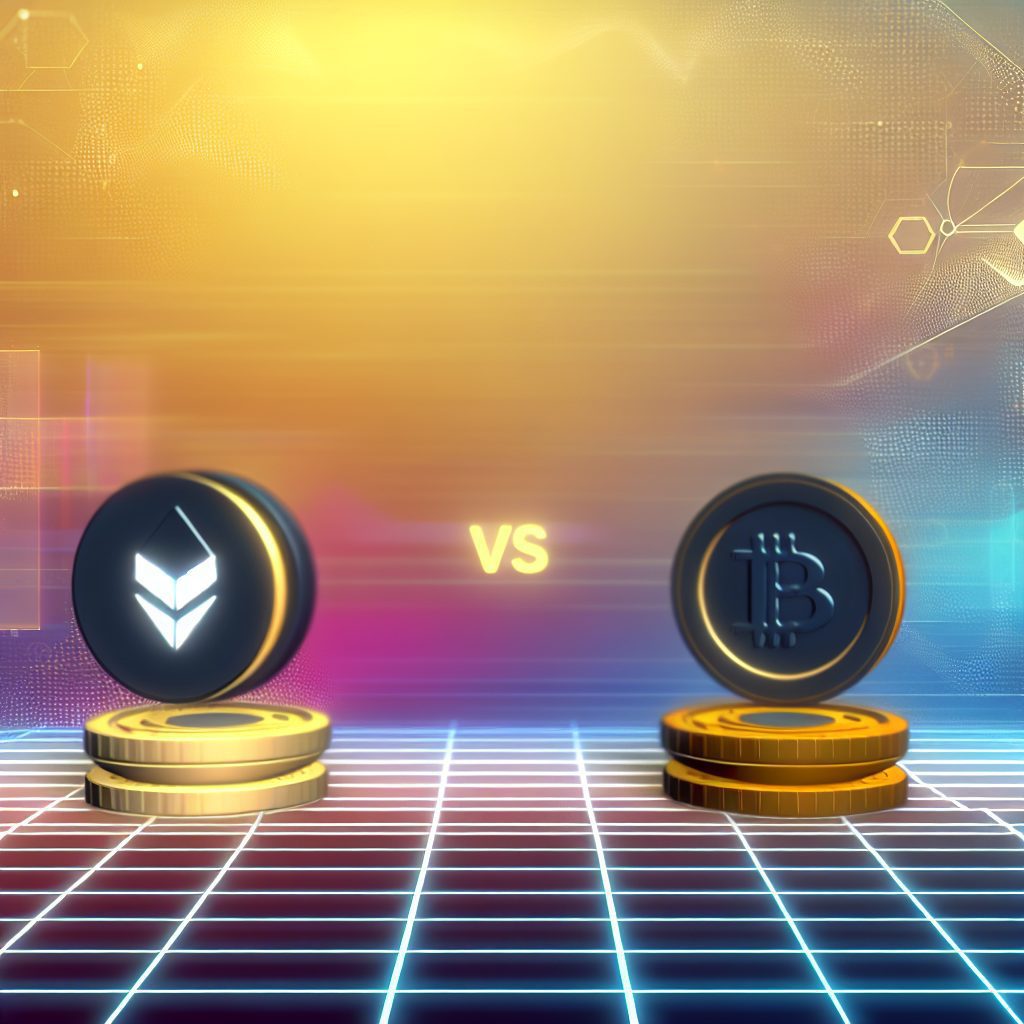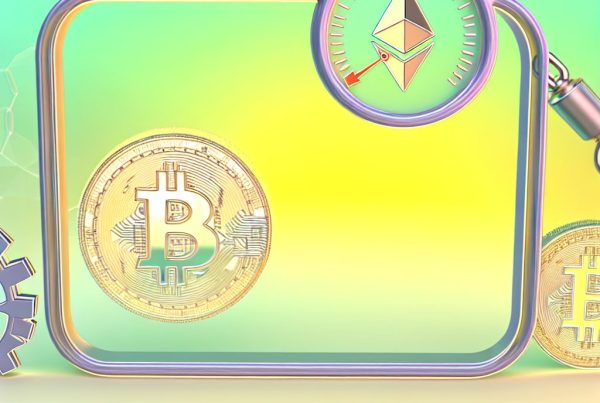What Is a Crypto Token vs Coin?
The cryptocurrency landscape is vast and often confusing, especially for newcomers. Among the most common terms encountered are crypto tokens and coins. While they are frequently used interchangeably, they represent distinct concepts within the blockchain ecosystem. Understanding the differences between these two is crucial for anyone looking to navigate the world of digital currencies effectively.
Defining Coins and Tokens
At the core of the cryptocurrency world, both coins and tokens serve as digital assets, but they have different functionalities and underlying technologies.
What Is a Coin?
A coin is a digital currency that operates independently on its own blockchain. Coins are primarily used as a medium of exchange, a store of value, or a unit of account. The most well-known example of a coin is Bitcoin (BTC), which was the first cryptocurrency and remains the most valuable by market capitalization.
- Independent Blockchain: Coins operate on their own blockchain. For instance, Bitcoin has its own blockchain, while Ethereum has its own as well.
- Primary Use: Coins are typically used for transactions, investment, and as a means to transfer value.
- Examples: Bitcoin (BTC), Ethereum (ETH), Litecoin (LTC), and Ripple (XRP).
What Is a Token?
A token, on the other hand, is a digital asset that is built on an existing blockchain. Tokens can represent a variety of assets or utilities and are often used in decentralized applications (dApps) or for specific purposes within a project.
- Built on Existing Blockchains: Tokens are created on top of existing blockchains, such as Ethereum, Binance Smart Chain, or Solana.
- Varied Use Cases: Tokens can represent assets, rights, or utilities, such as voting rights in a decentralized organization or access to a service.
- Examples: Tether (USDT), Chainlink (LINK), and Uniswap (UNI).
Key Differences Between Coins and Tokens
Understanding the differences between coins and tokens is essential for making informed investment decisions. Here are the primary distinctions:
1. Blockchain Independence
As mentioned earlier, coins operate on their own blockchains, while tokens are built on existing ones. This fundamental difference affects their functionality and use cases.

2. Purpose and Functionality
Coins are primarily used as a form of currency, while tokens can serve various purposes, including:
- Utility tokens that provide access to a service.
- Security tokens that represent ownership in an asset.
- Governance tokens that allow holders to participate in decision-making processes.
3. Creation Process
Coins are mined or created through a process called mining or staking, depending on the consensus mechanism of the blockchain. Tokens, however, are typically created through a process called an Initial Coin Offering (ICO) or a Token Generation Event (TGE).
Real-World Applications of Coins and Tokens
The applications of coins and tokens are vast and varied, reflecting the diverse needs of users and developers in the cryptocurrency space.
Coins in Action
Coins like Bitcoin and Ethereum are used for various purposes:
- Bitcoin: Used as a digital gold and a store of value.
- Ethereum: Serves as a platform for smart contracts and decentralized applications.
Tokens in Action
Tokens have a wide range of applications, including:
- Utility Tokens: Such as Binance Coin (BNB), which can be used to pay for trading fees on the Binance exchange.
- Security Tokens: Representing ownership in real-world assets, such as real estate or company shares.
- Governance Tokens: Like Maker (MKR), which allows holders to vote on changes to the MakerDAO protocol.
How to Buy Coins and Tokens
Purchasing coins and tokens involves different processes, depending on their nature and the platforms available.
Buying Coins
To buy coins like Bitcoin or Ethereum, you typically need to:
- Choose a cryptocurrency exchange (e.g., Coinbase, Binance).
- Create an account and complete the verification process.
- Deposit funds using fiat currency or another cryptocurrency.
- Place an order to buy the desired coin.
Buying Tokens
Buying tokens often involves a slightly different approach:
- Identify the token you wish to purchase and the blockchain it operates on.
- Use a decentralized exchange (DEX) like Uniswap or PancakeSwap if the token is not listed on major exchanges.
- Connect your cryptocurrency wallet (e.g., MetaMask) to the DEX.
- Swap your coins for the desired tokens.
Investing in Coins vs Tokens
When considering investments in coins or tokens, it’s essential to evaluate their potential based on various factors:
Market Capitalization
Market capitalization is a critical metric for assessing the value of a cryptocurrency. Coins like Bitcoin and Ethereum have high market caps, indicating widespread adoption and stability. In contrast, many tokens may have lower market caps, which can lead to higher volatility.
Use Case and Utility
Understanding the use case of a token is vital. Tokens with strong utility and real-world applications are more likely to succeed in the long term. For example, Chainlink (LINK) provides essential data feeds for smart contracts, making it a valuable asset in the DeFi space.
Community and Development
The strength of a coin or token’s community and development team can significantly impact its success. Active communities and dedicated developers often lead to better project outcomes.
Risks Associated with Coins and Tokens
Investing in cryptocurrencies comes with inherent risks, and understanding these risks is crucial for making informed decisions.
Volatility
Both coins and tokens can experience significant price fluctuations. Investors should be prepared for the possibility of losing a portion or all of their investment.
Regulatory Risks
The regulatory landscape for cryptocurrencies is continually evolving. Changes in regulations can impact the value and legality of certain coins and tokens.
Security Risks
Cryptocurrency exchanges and wallets can be vulnerable to hacks and security breaches. It’s essential to use reputable platforms and implement security measures to protect your assets.
Frequently Asked Questions (FAQs)
1. Can a token become a coin?
While a token cannot become a coin in the traditional sense, some projects may choose to launch their own blockchain and transition from being a token to a coin. This process requires significant development and community support.
2. Are all tokens built on Ethereum?
No, while Ethereum is the most popular platform for token creation, other blockchains like Binance Smart Chain, Solana, and Polkadot also support token development.
3. How do I store coins and tokens?
Coins and tokens can be stored in cryptocurrency wallets. Hardware wallets provide enhanced security, while software wallets offer convenience. Always ensure you use reputable wallets to safeguard your assets.
4. What is the difference between a utility token and a security token?
A utility token provides access to a product or service within a blockchain ecosystem, while a security token represents ownership in an asset or company and is subject to regulatory scrutiny.
Conclusion
Understanding the differences between crypto tokens and coins is essential for anyone looking to invest or participate in the cryptocurrency market. Coins serve as digital currencies operating on their own blockchains, while tokens are built on existing blockchains and can serve various purposes. By grasping these concepts, investors can make more informed decisions and navigate the complexities of the crypto landscape more effectively.
For the latest news and updates in the cryptocurrency world, consider visiting Bitrabo. Follow me on social media for more insights: X, Instagram, and Threads.
Disclaimer: This article is for informational purposes only and should not be considered financial advice. Always conduct your own research before investing in cryptocurrencies.
The Crypto Watchlist of the Week 🔎
Subscribe to receive expert-curated projects with real potential—plus trends, risks, and insights that matter. Get handpicked crypto projects, deep analysis & market updates delivered to you.


